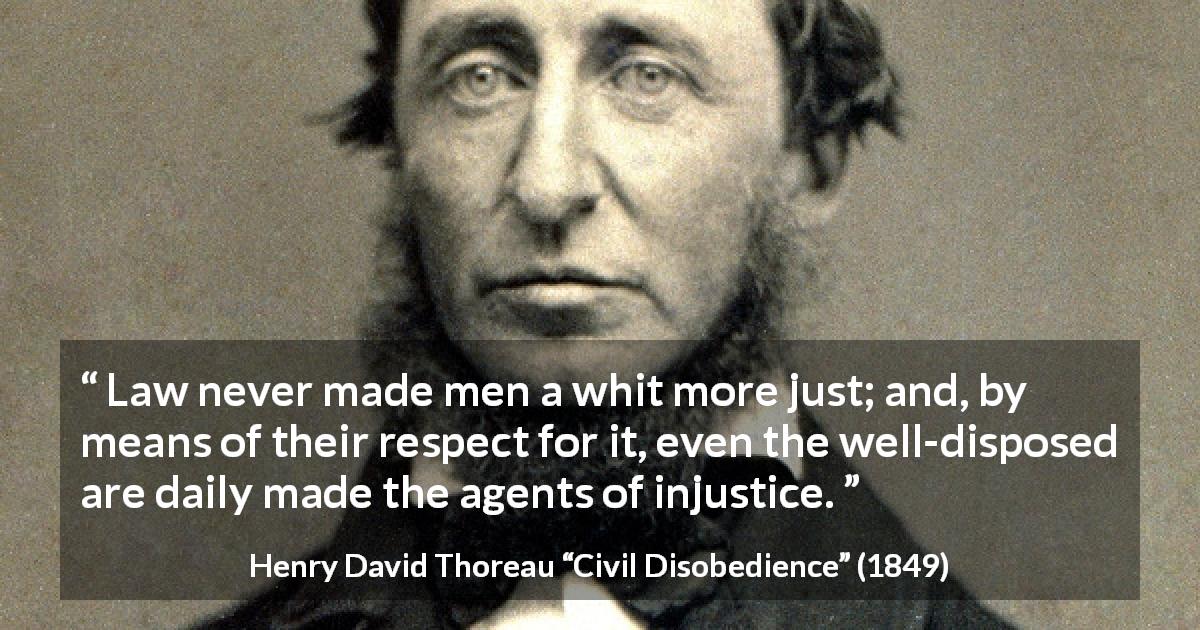

In saying this, he means that if citizens never questioned the government’s actions the United States would not be the country that it is. When Thoreau speaks of government injustices, he is talking about slavery, while when King does so he is referring to segregation both Thoreau states in his essay, “ If we were left solely to the wordy wit of legislators in Congress for guidance, uncorrected by the seasonable experience and the effectual complaints of the people, America would not long retain her rank among the nations”. Regardless of their differing points of view, both of them promote similar ideologies. King is subject to the laws he opposes Thoreau is not. Henry David Thoreau and Martin Luther King have two totally different perspectives: Thoreau is a white man living in the 1800s refusing to pay taxes to a government that allows slavery, and King is a black man at the forefront of the Civil Rights Movement. Within “Civil Disobedience” and “Letter from Birmingham Jail,” the authors address injustices that are committed by the government. “Civil Disobedience” vs “Letter from Birmingham Jail” In both of these essays, King and Thoreau explore the concept of systematic injustice and the idea of challenging laws one does not find morally right using vastly different tones to convey their messages. Similarly, a century later, King articulates when it is just to protest the government and how progressive policy is brought about by citizens demanding their rights. Thoreau writes about his reasoning for defying the law and calls on other people to fight for what they know to be morally right. Martin Luther King, Jr.’s “Letter from Birmingham Jail” the authors examine the notion of disobeying the government in the case of moral injustice. In Henry David Thoreau’s “Civil Disobedience” and Dr.


 0 kommentar(er)
0 kommentar(er)
